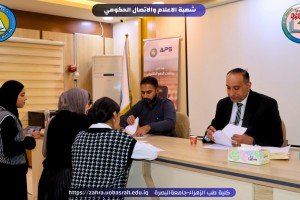Knowledge assessment of female students of Southern Technical University in Basrah-Iraq, regarding breast cancer and breast self-examination
Researchers’ names & Place of work:
1. Majed Abdul Wahab: Southern Technical University, Basrah
2. Abdul Kareem M. Jawad: Abdul Kareem M. Jawad. Southern Technical University, Basrah.
3. Rajaa Ahmed Mahmoud: Al Zahraa College of Medicine, University of Basrah
Background: Globally, epidemiological statistics provide an evidence that breast cancer is the second common type of cancers and definitely the most common type among women with a fraction of 25% of the total registered cancer cases. And by reviewing the worldwide mortality rates, it is among the top ten killers worldwide with an estimated increase in the number of deaths from 7.4 million in 2004 to 83.2 million in 2015.
With such an increasing burden of the disease over time, a huge necessity emerged to conduct more studies on breast cancer knowledge, early detection practices, in addition to the assessment of the disease risk factors and preventive measures.
The study objective: To assess the knowledge of female students of the Southern Technical University in Basrah regarding breast cancer (signs, symptoms, breast self-examination and ways of prevention).
Methodology of the study: It is a cross-sectional study that included 250 female students of the Southern Technical University in Basra with the age between 18-24 years during the year 2018.
Results: The study found that 66.8% of the female students knows some or all the signs and symptoms of breast cancer compared to 33.2% of them who did not know any sign or symptom of the disease.
62.8% of the students included in the study did not know that breast cancer is a preventable disease. More than half of the sample (55.6%) did not hear about breast self-examination. In addition, the majority of those who knew about breast self-examination, mentioned that the importance of breast self-examination is early detection of breast cancer. While the rest of the study population thought that it is important only for reassurance.
Conclusions and recommendations: The study concluded that more health education training and awareness sessions on breast self-examination technique should target students at an early age with a special focus on university students.


.jpeg)
.webp)
